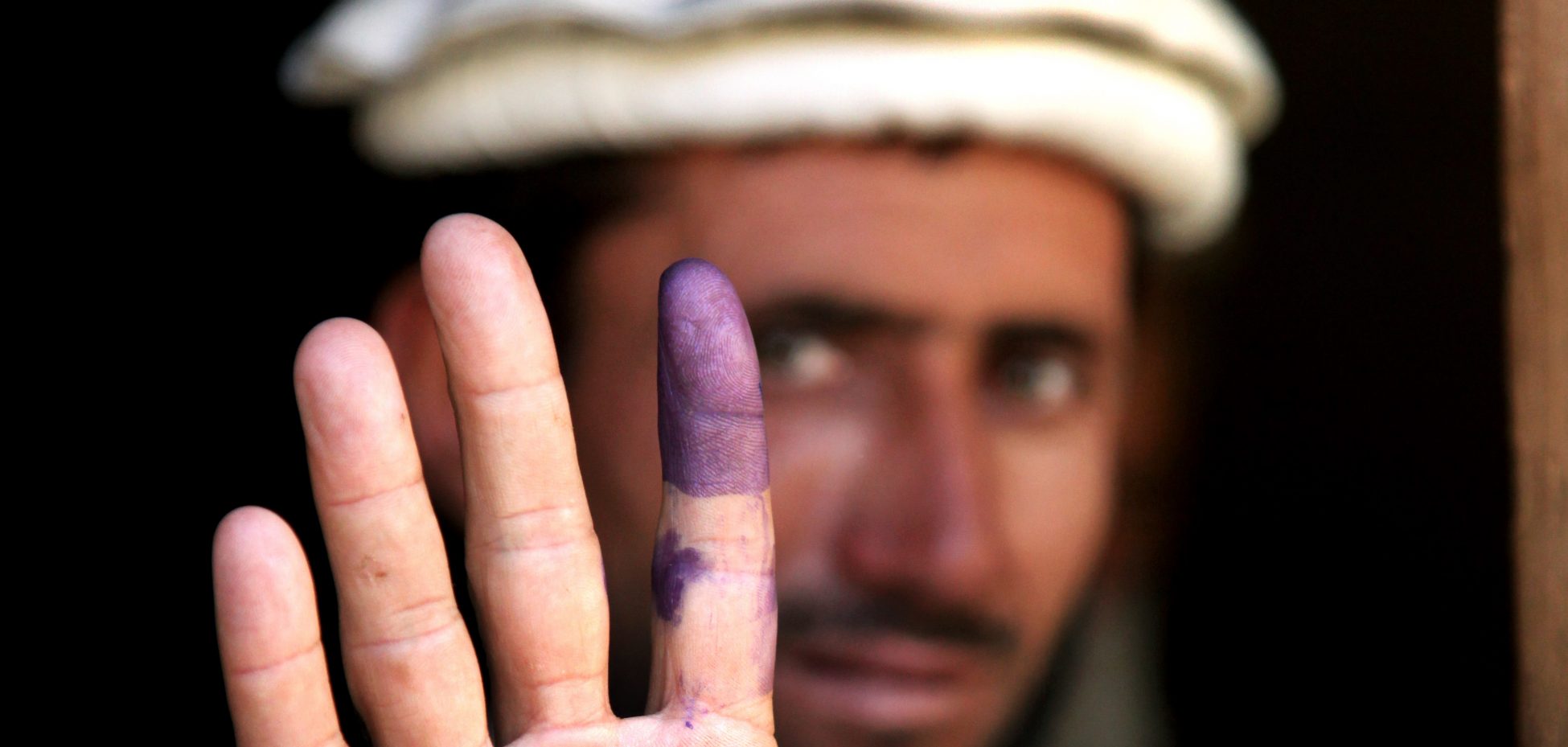The Winners of the Afghan Presidential Run-Off Election: The Taliban?

The recent run-off Presidential election has the potential to further divide Afghan politics along ethnic lines, exacerbating current tensions and bringing the Taliban back into the reckoning.
Background
On 7 July, the Independent Election Commission of Afghanistan announced the preliminary results of the 14 June presidential run-off election. According to those results, Ahsraf Ghani won, with just over 56 per cent of the votes. Perhaps unsurprisingly, the other candidate, Abdullah Abdullah, rejected the result as a coup against the people of Afghanistan and accused President Karzai of manipulating the election so as to ensure that his favourite, Ghani, won.
Comment
Abdullah and Ghani were both prominent in the Karzai Government, the former was the Foreign Minister and the latter the Finance Minister. Ghani earned a doctoral degree from Columbia University in the US and worked at the World Bank; Abdullah is an ophthalmologist, his step-father an officer in King Zahir Shahʼs government and also an adviser to Ahmad Shah Massoud. The US favours Ghani because of his close ties with that country and its institutions and, perhaps, the US Government sees him as leaning towards it. Ghaniʼs election, therefore, would give the US access to Central Asia, the ability to keep a close watch on Chinese and Russian influence there, and, if need be, perhaps act to stem that influence. Indeed, Ghani has shown a lot of interest in the idea of hosting US and NATO military bases in Afghanistan. (A complicated situation becomes even more so when Chinese concerns about such an eventuality are taken into consideration.) On the other hand, Abdullah is favoured by India and Iran. Also, while Ghani is a Pashtun, Abdullah is ethnically Tajik-Pashtun. The ethnicity of both candidates has been a major factor in the run-off campaign.
Abdullah is, perhaps, justified in his criticism of the election result. Having won a large plurality in the first round, he was endorsed by a third candidate, who subsequently withdrew from the race. Despite this, Ghani allegedly won by more than a million votes. To make sure that he is seen to be above board, however, Ghani has agreed to an audit of the election results. Despite this, Abdullah has spoken of establishing a parallel government. It appears, therefore, that the smooth transition of power many had hoped for might yet elude Afghanistan.
As indicated previously, the ethnicity of the two candidates has played a major part in the election. Support for Abdullah stems mainly from the Tajiks and Ghaniʼs from the Pashtun of Afghanistan. This is a problem in itself. The Pashtun have historically ruled Afghanistan, only losing control in 1992 when the Tajiks came to power. Having ruled in one form or another since then, the Tajiks do not wish to see control of the country return to the Pashtun.
Again, Abdullahʼs support comes mostly from the Panjshir Valley, which has been seen as virtually autonomous, no matter who controlled Kabul. If he sticks to his claim and does create a parallel government, it would be no real surprise if the Tajik majority in the Valley claimed even greater autonomy, or decided to secede from Afghanistan altogether. This would almost certainly lead to civil war.
Be that as it may, India supports Abdullah, since his ethnicity gives him access beyond his immediate area of influence in North Afghanistan, to the countries of Central Asia. Any association with him, then, will give India a degree of acceptance among the Tajiks of the region beyond Afghanistan. Ghani, on the other hand, has the support of the tribes from the Pashtun region to the south of the country, even though he himself has his origins in the north. Also, the Mujahideen, led by Gulbuddin Hekmatyar, with a power base among the Pashtun tribes, supports Ghani. Consequently, Pakistan, which has its own ties to the Mujahideen, also backs Ghani.
Another complicating factor in this situation is their choice of running mates. Abdullah chose the Governor of the northern Balkh Province, Atta Muhammad Nur, a Tajik, as his Vice-Presidential candidate. Ghani chose Abdur Rashid Dostum, an Uzbek, as his. In choosing Dostum, Ghani probably wanted to gather the Uzbek vote. The problem, however, lies in the bad blood between Nur and Dostum. No matter which presidential candidate finally comes to power, it is very likely that his vice-president will use his office to settle scores with the losing vice- presidential candidate. This will probably pit Uzbeks against Tajiks.
In all of this, the Taliban has been prominent by its silence about the run-off. Ghani believes that engaging the Taliban is a necessity for establishing peace and stability in Afghanistan. Furthermore, the common ties they share with Islamabad will work towards bringing Ghani and the Taliban closer than Abdullah and the Taliban. Perhaps to ensure that its presence is still noticed, the Taliban has recently taken to attacking high profile targets in Afghanistan, including an attack on the international airport in Kabul. The Taliban could, in the end, be the real winner of the Presidential run-off.
Lindsay Hughes is a research analyst at the Indian Ocean research Programme. She can be reached at lhughes@futuredirections.org.au.
This article was originally published by Future Directions International. It is republished with permission.



